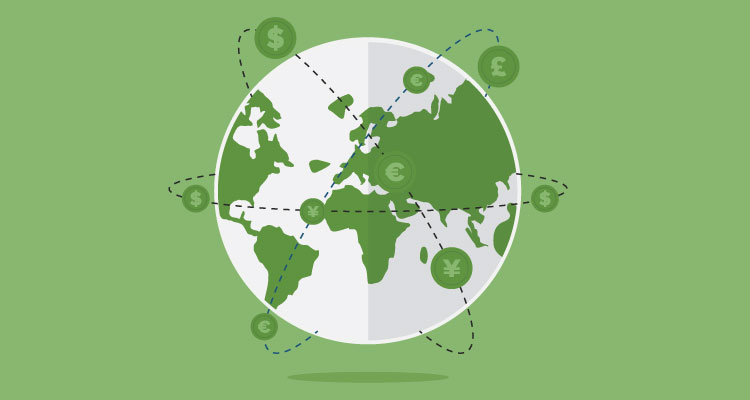Some of the biggest hurdles business owners of all sizes face when tapping into international markets has been finding a way to process international payments affordability and securely. That’s not always the easiest of tasks when dealing with a fluctuation between currencies and transferring funds between several banks. In fact, international payment processing could take days, if not weeks, to process and can end-up making a big dent into your profits – both of which aren’t good for your cash flow.
That’s not to say that you should immediately rule-out processing international payments. It simply means that you should first ask whether or not international payment processing is worth the investment by asking the following two questions:
Should your business go global?
Doing business with customers and clients overseas provides benefits like tapping into new markets, diversifying risk, increasing your brand’s exposure, and ultimately increasing your profits. But, not all businesses are suited to go international.
Before going global, Chirag Kulkarni, co-founder and CEO of Insightly, suggests that you should first take into consideration the following;
- Are my customers global? Just because there’s a market full-of-money doesn’t mean that your customers are there. Make sure there’s a demand for your products or services.
- Is your team on-board? Listen to your team. If they’re urging you to enter into a new market then don’t brush them off. They may know something that you don’t.
- Is your website ready for global customers? Don’t assume that all of your customers speak your native language. If you’re based in the U.S., but have a strong customer base in France, then your website should also be in French.
- Do you have an emergency fund? You should have an emergency fund, anyways, but there are regional customs that you may not have taken into account. For example, it’s not uncommon in India for businesses to speed-up the regulation process by bribing officials.
- Do you have a local team? You need a team on the ground that is familiar with the language, customs, rules, and regulations.
- Is your pricing suitable for market you’re entering? Customers will get turned off if you’re charging them the same price that you are in your local country.
- Do you have an exit strategy? Always be prepared to get out in case of failure, which there’s a good possibility that it will occur.
Answering these questions are going to take time and money to answer, and if you’re lacking either, you may not want to proceed because it may not be cost-effective. But, if you believe that you’re ready to enter the international market then it’s time to answer the second question;
How much does it cost to process international payments?
Traditionally, businesses processed international payments via bank transfers, international merchant accounts, transfer options, or forgeign exchange brokers.
While of these methods are effective and secure, they’re also expensive.
- Traditional banks can charge anywhere between 4% to 15% for transferring funds abroad.
- International merchant accounts, if you’re not a high risk merchant, can be between 4% to 6% to process credit cards.
- Transfer operators such as MoneyGram and Western Union could charge between 7-12%. As NerdWallet notes that most wire transfers $10 for incoming international wires and $42 for outgoing international wires.
- If you have larger international transactions, then you could go through a foreign exchange broker. While fees are typically 3-4% lower than banks, there not as transparent with their pricing.
If you’re a small business owner with minimal global sales, it may not be worth paying these international processing fees since they’ll eat into your profits.
Improving your business international payment processing.
Thankfully, there are ways for you to improve and reduce the cost of international payment processing.
As William Lipovsky points out in a previous Due post, you can do so by:
- Managing costly fees. Partner with a U.S. bank that can give you access to foreign markets and currency at competitive rates or an overseas bank.
- Exploit Fintech. Companies, like Due, are using the latest financial technology that allow freelancers and business owners to process global payments securely and at a low 2.8% per transactions rate.
- Consider Cryptocurrencies. Cryptocurrencies, like bitcoin, use blockchain technology to initiate payments directly between you and your customers securely. Because it’s decentralized, there are no middlemen involved, which means that you’re eliminating transaction fees.
- Use free resources. Organizations like the U.S. Export Import Bank can assist you in obtaining foreign credit and even insurance.
Finally, compare the fees that international payment companies are charging businesses to process payments. We’ve previously put together a list of the top 101 international payment companies for you to get started.
So, is international payment processing an affordable option? If you’re business is ready to enter new markets, you don’t have to rely on traditional international processing payments that were slow and time-consuming. Thanks to digital wallets and the blockchain, processing global payments are affordable, quick, and secure.















